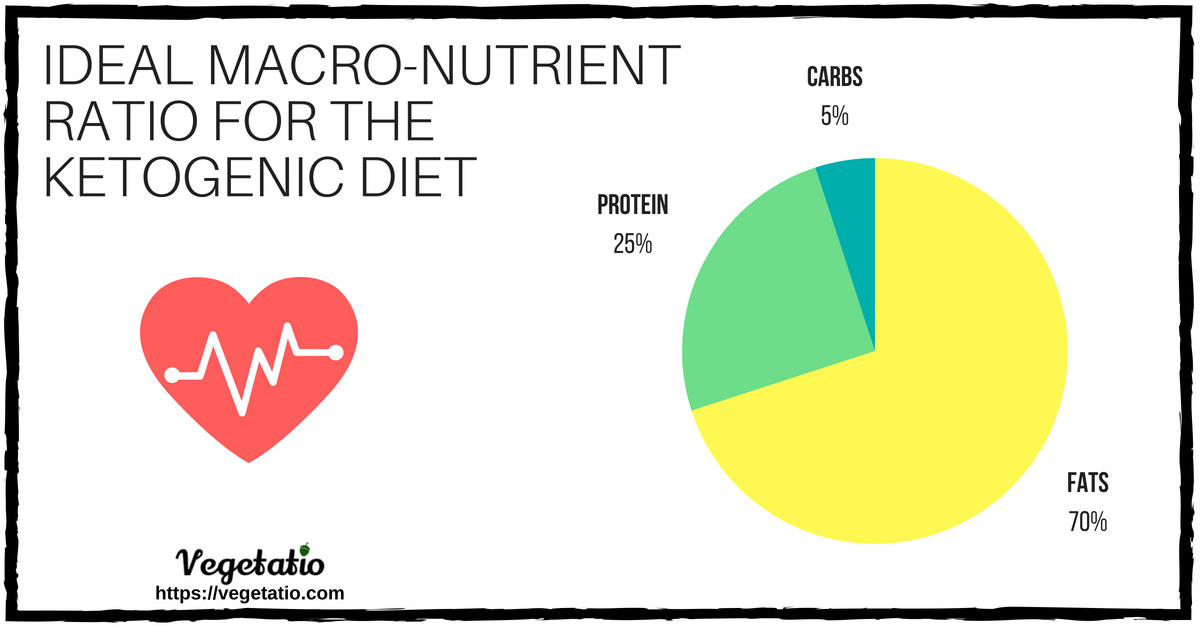Keto Diet Shopping List
Speed Keto Diet Plan
Table of ContentsWhat Is Keto DietHow To Keto DietKeto Diet For Beginners
A reduction in appetite-stimulating hormones, such as insulin and ghrelin, when eating restricted quantities of carbohydrate. A direct hunger-reducing function of ketone bodiesthe body's main fuel source on the diet plan. Increased calorie expenditure due to the metabolic results of transforming fat and protein to glucose. Promo of weight loss versus lean body mass, partially due to reduced insulin levels.
Diet plans otherwise described "low carb" might not include these particular ratios, permitting greater amounts of protein or carb. For that reason just diets that defined the terms "ketogenic" or "keto," or followed the macronutrient ratios noted above were included in this list listed below. In addition, though extensive research exists on using the ketogenic diet plan for other medical conditions, just studies that took a look at ketogenic diet plans particular to obesity or overweight were consisted of in this list.
7.18.) A meta-analysis of 13 randomized controlled trials following overweight and overweight individuals for 1-2 years on either low-fat diets or very-low-carbohydrate ketogenic diets found that the ketogenic diet plan produced a little but substantially greater decrease in weight, triglycerides, and high blood pressure, and a higher boost in HDL and LDL cholesterol compared to the low-fat diet plan at one year.

An organized evaluation of 26 short-term intervention trials (varying from 4-12 weeks) evaluated the cravings of overweight and obese people on either a really low calorie (800 calories daily) or ketogenic diet (no calorie constraint however 50 gm carb day-to-day) using a standardized and verified appetite scale. None of the studies compared the 2 diets with each other; rather, the individuals' hungers were compared at baseline prior to beginning the diet plan and at the end.
The authors noted the lack of increased cravings in spite of severe constraints of both diets, which they theorized were due to changes in appetite hormones such as ghrelin and leptin, ketone bodies, and increased fat and protein consumption. The authors recommended more research studies exploring a limit of ketone levels required to suppress cravings; simply put, can a greater amount of carb be consumed with a milder level of ketosis that might still produce a satiating impact? This might allow inclusion of healthy higher carbohydrate foods like entire grains, legumes, and fruit.
Their levels of ghrelin did not increase while they remained in ketosis, which added to a reduced cravings. However throughout the 2-week duration when they came off the diet plan, ghrelin levels and prompts to eat substantially increased (keto diet meal plan). A study of 89 overweight grownups who were put on a two-phase diet regimen (6 months of a very-low-carbohydrate ketogenic diet plan and 6 months of a reintroduction stage on a typical calorie Mediterranean diet plan) revealed a substantial mean 10% weight loss with no weight restore at one year.
Eighty-eight percent of the participants were certified with the whole routine (keto diet meal plan). It is noted that the ketogenic diet utilized in this study was lower in fat and a little greater in carbohydrate and protein than the typical ketogenic diet that provides 70% or higher calories from fat and less than 20% protein.
Ketogenic Cycling
Possible signs of severe carbohydrate limitation that might last days to weeks consist of hunger, fatigue, low mood, irritation, irregularity, headaches, and brain "fog." Though these unpleasant feelings may go away, remaining pleased with the limited range of foods available and being restricted from otherwise pleasurable foods like a crispy apple or creamy sweet potato may present brand-new challenges.
Possible nutrient deficiencies may arise if a range of advised foods on the ketogenic diet plan are not included. It is necessary to not entirely concentrate on eating high-fat foods, but to include a day-to-day range of the enabled meats, fish, vegetables, fruits, nuts, and seeds to ensure sufficient consumptions of fiber, B vitamins, and minerals (iron, magnesium, zinc) nutrients usually discovered in foods like whole grains that are limited from the diet plan.
What are the long-lasting (one year or longer) effects of, and are there any safety problems associated with, the ketogenic diet? Do the diet's health benefits reach higher risk people with multiple health conditions and the elderly? For which disease conditions do the advantages of the diet exceed the risks? As fat is the main energy source, is there a long-lasting effect on health from taking in different kinds of fats (saturated vs.
 Is Diet Soda Bad For You? (Diet Coke For Weight Loss?) - Nerd
Is Diet Soda Bad For You? (Diet Coke For Weight Loss?) - Nerd
Most of the studies up until now have had a little number of individuals, were short-term (12 weeks or less), and did not include control groups. A ketogenic diet has been shown to supply short-term benefits in some people including weight reduction and enhancements in overall cholesterol, blood sugar level, and high blood pressure.
 Vegetarian Keto: The Ultimate Low Carb Diet Guide For
Vegetarian Keto: The Ultimate Low Carb Diet Guide For
https://www.youtube.com/embed/tIuj-oMN-Fk
Getting rid of a number of food groups and the capacity for unpleasant symptoms may make compliance tough. An emphasis on foods high in saturated fat also counters suggestions from the Dietary Guidelines for Americans and the American Heart Association and may have adverse effects on blood LDL cholesterol. However, it is possible to modify the diet to stress foods low in saturated fat such as olive oil, avocado, nuts, seeds, and fatty fish.
The exact ratio of fat, carb, and protein that is required to achieve health benefits will differ among people due to their hereditary makeup and body structure. Therefore, if one picks to start a ketogenic diet plan, it is suggested to speak with one's physician and a dietitian to closely monitor any biochemical changes after starting the routine, and to develop a meal strategy that is tailored to one's existing health conditions and to avoid nutritional deficiencies or other health problems.
A modified carb diet plan following the Healthy Consuming Plate model might produce appropriate health benefits and weight reduction in the basic population. Referrals Paoli A, Rubini A, Volek JS, Grimaldi KA. Beyond weight reduction: an evaluation of the restorative uses of very-low-carbohydrate (ketogenic) diet plans. Eur J Clin Nutr. 2013 Aug; 67( 8 ):789.
What Is The Keto Diet
Ketogenic diet plan for weight problems: friend or enemy?. Int J Environ Res Public Health. 2014 Feb 19; 11( 2 ):2092 -107. Gupta L, Khandelwal D, Kalra S, Gupta P, Dutta D, Aggarwal S. Ketogenic diet plan in endocrine disorders: Existing perspectives. J Postgrad Med. 2017 Oct; 63( 4 ):242. von Geijer L, Ekelund M. Ketoacidosis related to low-carbohydrate diet plan in a non-diabetic lactating lady: a case report. J Med Case Rep.
Shah P, Isley WL. Correspondance: Ketoacidosis throughout a low-carbohydrate diet. N Engl J Med. 2006 Jan 5; 354( 1 ):97 -8. Marcason W. Question of the month: What do "net carb", "low carb", and "impact carb" actually mean on food labels?. J Am Diet Plan Assoc. 2004 Jan 1; 104( 1 ):135. Schwingshackl L, Hoffmann G. Comparison of results of long-lasting low-fat vs high-fat diets on blood lipid levels in overweight or obese patients: a systematic evaluation and meta-analysis.
2013 Dec 1; 113( 12 ):1640 -61. Abbasi J. Interest in the Ketogenic Diet Plan Grows for Weight Loss and Type 2 Diabetes - keto diet meal plan. JAMA. 2018 Jan 16; 319( 3 ):215 -7. Gibson AA, Seimon Recreational Vehicle, Lee CM, Ayre J, Franklin J, Markovic TP, Caterson ID, Sainsbury A. Do ketogenic diet plans truly reduce hunger? A methodical evaluation and metaanalysis. Obes Rev.
Bueno NB, de Melo IS, de Oliveira http://ketoquizrbei329.almoheet-travel.com/beginners-keto-diet-plan SL, da Rocha Ataide T. Very-low-carbohydrate ketogenic diet v. low-fat diet for long-lasting weight loss: a meta-analysis of randomised regulated trials. Br J Nutr. 2013 Oct; 110( 7 ):1178 -87. Sumithran P, Prendergast LA, Delbridge E, Purcell K, Shulkes A, Kriketos A, Proietto J. Ketosis and appetite-mediating nutrients and hormones after weight reduction.
